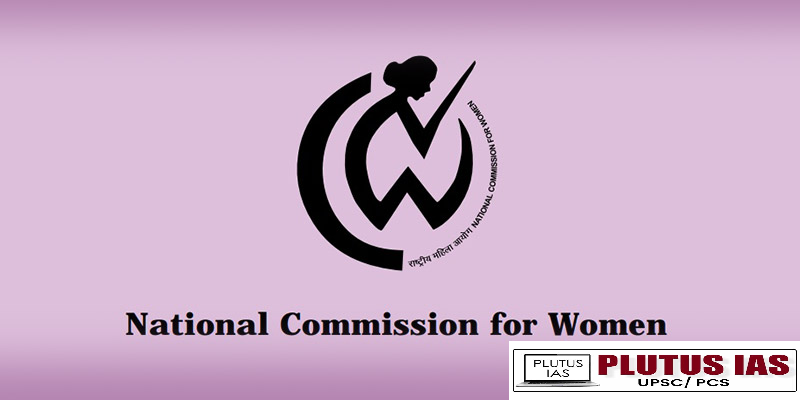22 Oct Advancing Women’s Empowerment: New Chairperson for National Commission for Women
SYLLABUS MAPPING:
GS-2-Polity-Advancing Women’s Empowerment: New Chairperson for National Commission for Women
FOR PRELIMS:
What is the primary role of the National Commission for Women in India?
FOR MAINS:
Examine the impact of leadership changes in the National Commission for Women on its effectiveness in advocating for women’s empowerment.
Why In the News?

Vision:
The Indian Woman, secure in her home and outside, is fully empowered to access all her rights and entitlements, with the opportunity to contribute equally in all walks of life.
Issue with NCW:
1. Manpower and Resources:
Limited Staff: The NCW often operates with insufficient manpower, which hampers its ability to effectively address the numerous complaints and issues related to women’s rights.
Resource Constraints: Budgetary limitations can affect the Commission’s outreach and operational capacity.
2. Selective Action:
Bias in Handling Cases: Critics argue that the NCW sometimes exhibits selective action, prioritizing certain cases over others based on political affiliations or social status.
Lack of Transparency: The decision-making process regarding which issues to pursue can lack transparency, leading to concerns about fairness.
3. Politicalization:
Influence of Politics: The NCW’s functioning may be influenced by political considerations, impacting its independence and effectiveness in advocating for women’s rights.
Appointment of Members: Political affiliations may play a role in the selection of members, affecting the Commission’s impartiality.
4. Appointment Procedure:
Lack of Clear Criteria: The procedure for appointing members and the chairperson can be opaque, with insufficient criteria for selection, raising concerns about meritocracy.
Dependence on Government: The government’s role in appointments may lead to biases, affecting the diversity and representation within the Commission.
5. Recommendations Without Action:
Advisory Nature: The NCW primarily has a recommendatory role, which means that its suggestions may not always be implemented, limiting its effectiveness.
Lack of Follow-Up: There is often inadequate follow-up on the implementation of its recommendations, leading to frustration among stakeholders.
6. Awareness Among Target Groups:
Limited Outreach: Many women, especially in marginalized communities such as Dalits, are not aware of their rights or the services offered by the NCW.
Cultural Barriers: Social and cultural barriers can prevent women from seeking help or utilizing the resources provided by the Commission.
7. Focus on Urban Issues:
Neglect of Rural Concerns: The NCW’s focus may be skewed towards urban issues, leaving rural women and their specific challenges underrepresented.
Way forward:
1. Policy Advocacy: The NCW should advocate for policies that address gender disparities in various sectors, including education, healthcare, and employment.
2. Awareness Campaigns: Launching campaigns to raise awareness about women’s rights and issues can help educate the public and encourage a cultural shift towards gender equality.
3. Support for Victims: Strengthening support systems for women facing violence and discrimination, including legal aid and counselling services, is essential.
4. Economic Empowerment: Promoting initiatives that support women’s entrepreneurship and financial independence can significantly impact their empowerment.
5. Collaboration with Stakeholders: Engaging with NGOs, businesses, and government agencies can foster a more comprehensive approach to women’s empowerment.
6. Research and Data Collection: Gathering data on women’s issues can inform policies and highlight areas needing attention.
7. Mentorship Programs: Establishing mentorship programs can empower young women and provide them with guidance and opportunities in various fields.
8. Focus on Education: Ensuring equal access to education for girls and women is fundamental for long-term empowerment.
Conclusion:
The NCW must overcome challenges like limited resources, selective action, and political influences while also addressing the low awareness among marginalized communities. To be more effective, the Commission should strengthen its operational capacity, ensure transparency, and broaden its focus on diverse women’s issues, particularly in rural areas. By implementing robust follow-up mechanisms and expanding outreach efforts, the NCW can empower women to access their rights and support services.
Download plutus ias current affairs (ENG) 22 Oct 2024
Prelims Question:
Q. Consider the following statements regarding strategies to enhance the effectiveness of the National Commission for Women (NCW) in India:
1. Implementing a reduced budgetary framework to optimize resource allocation and operational efficiency.
2. Establishing a comprehensive and transparent merit-based criterion for the selection of the chairperson and members to ensure independence and integrity.
3. Allowing political affiliations to guide the prioritization of cases to align the Commission’s objectives with governmental agendas.
How many of the statements given above are correct?
A. Only one
B. Only two
C. All three
D. None
Answer: B
Mains Question:
Q. We are witnessing increasing instances of sexual violence against women in the country. Despite existing legal provisions against it, the number of such incidences is on the rise. Suggest some innovative measures to tackle this menace.
(250 words, 15 marks)



No Comments